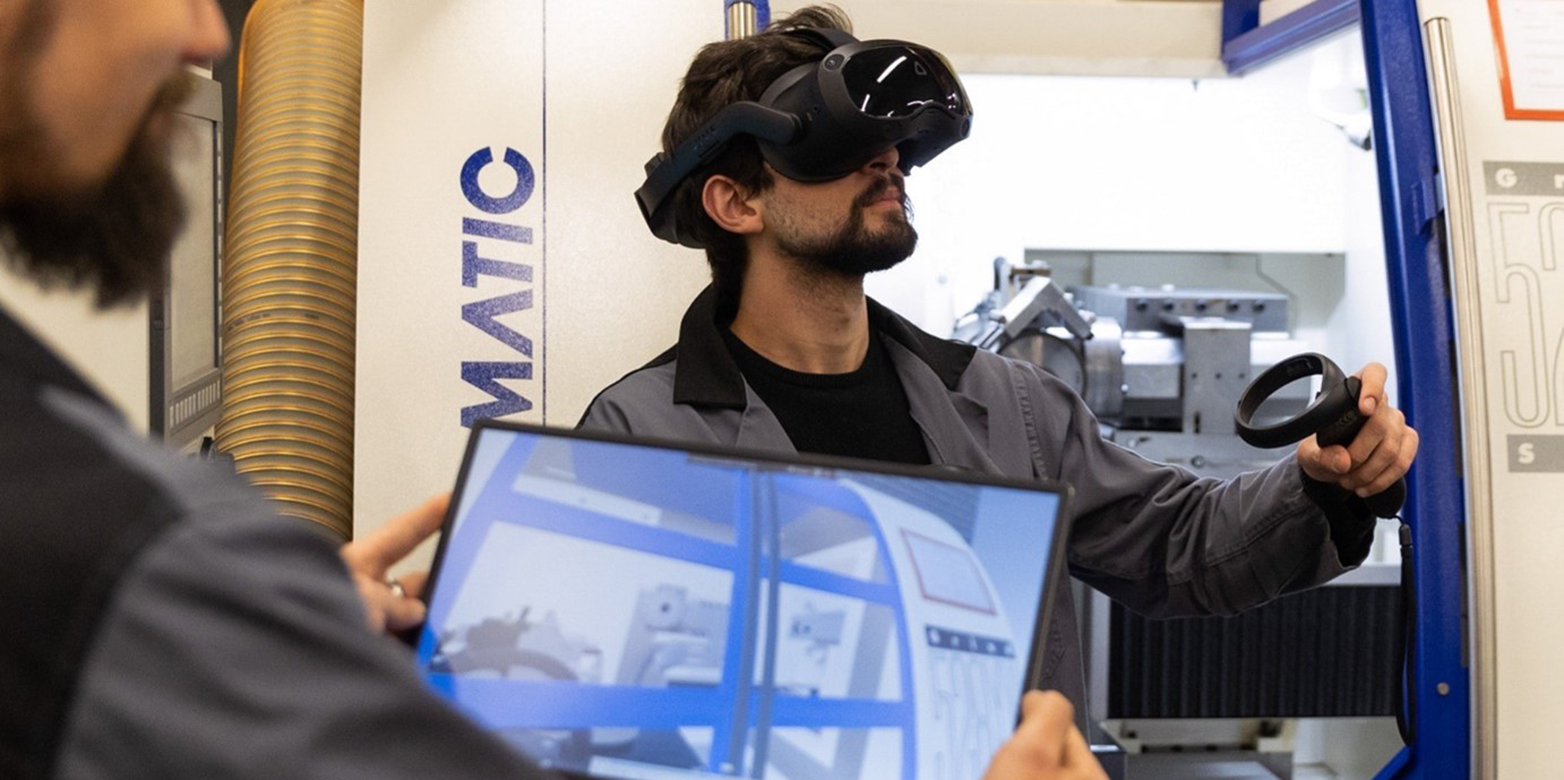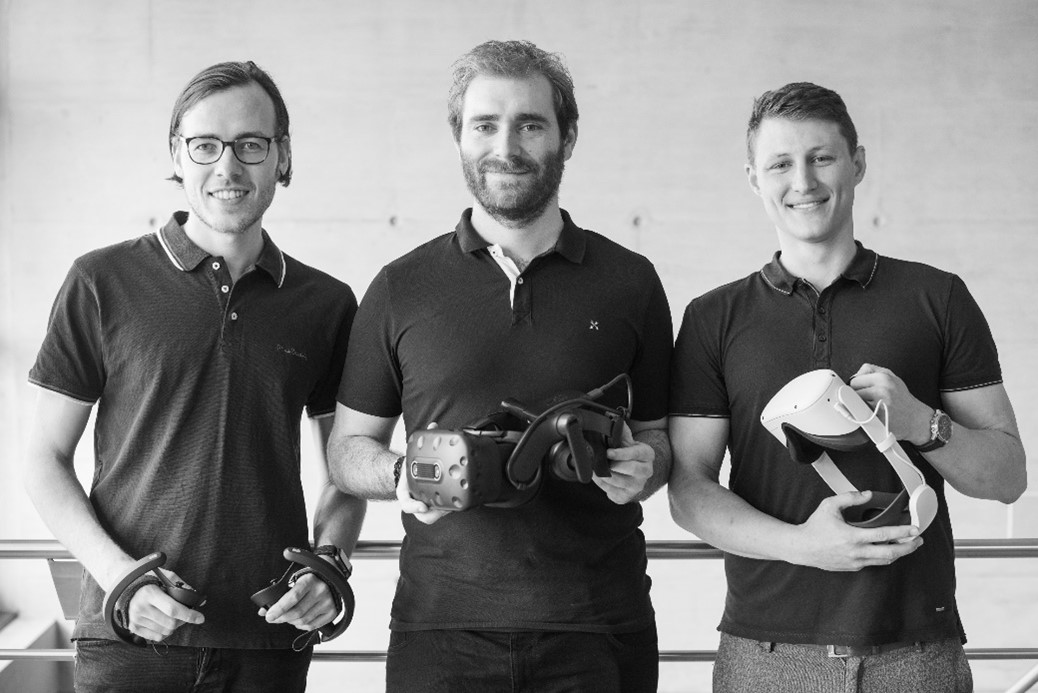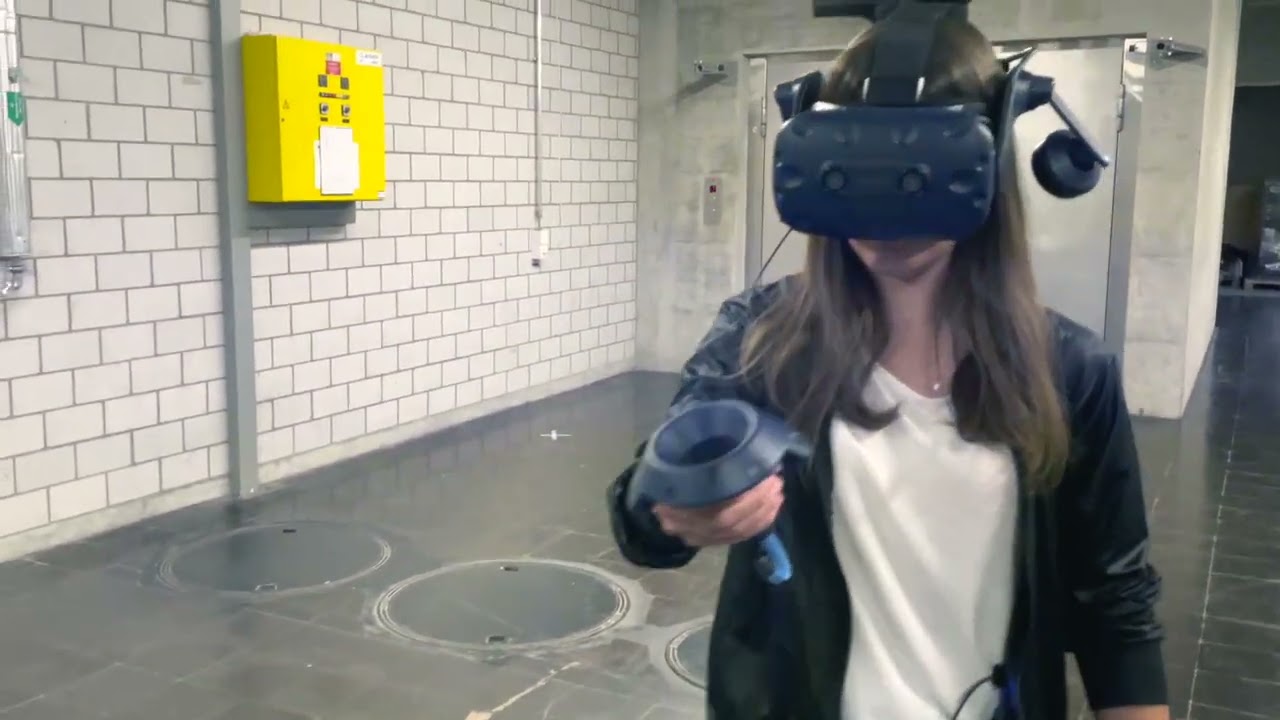Industrial VR training
ETH spin-off AtlasVR offers virtual reality (VR) training solutions for industry, enabling the workforce to train independently and efficiently. Thanks to virtual training, a significant amount of resources like raw materials can be saved.

We met with co-founder Valentin Holzwarth.
What is the main challenge that companies face when they train workers?
Educating and training skilled workers in the industrial sector has always been resource-intensive since it consumes significant amounts of material and time, with trainers often having to travel to the companies to provide training. AtlasVR’s virtual reality training offers a scalable solution to train people more efficiently and sustainably.
How can companies benefit from your solution? Could you give an example?
A big advantage of VR software-based training is that the industry saves a lot of raw material that is otherwise wasted. At suissetec, around 300 trainees a year learn how to seal flat roofs with our virtual technology, something that used to be learned only with a gas flame and bitumen. This saves the procurement and disposal of bitumen, as well as large quantities of propane gas. Additionally, our technology is very safe, with zero risk of injuries. For these reasons, VR training is a revolutionary improvement to traditional training.
“Thanks to AtlasVR, we save 25 tons of bituminous membranes and significant volumes of natural gas every year.”Alois Gartmann, Deputy Director, suissetec
Which industry sectors can use AtlasVR?
Our technology is designed to support training efficiency and evolution in the Mechanical, Electrical, and Metal (MEM) as well as the building technology sector. Using this VR training solution enables businesses in these sectors to close skill-gaps and shortages in trained workers in a cost-, time-, and resource-efficient manner. Our virtual reality-based software solution is accessible to a broad range of B2B clients. Since our solution can be tailored to the needs of any application in the MEM and building technology sector, the software is useful wherever goods are produced, repaired, or serviced.
Is the technology affordable?
We can provide the industry with a scalable and cost-effective training solution for skilled workers; the hardware for training, consisting of one VR headset and two hand-held controls, fits in a standard backpack and costs about 400 CHF per set.
With an end-to-end approach, we support our customers from use-case evaluation to the rollout of the final training solution. For the initial setup, we just need the 3D models of the respective equipment and the current training materials, if available.
What else is needed for customers to get started with the training?
The customer can start immediately after receiving the VR hardware and train as many workers at the same time in various locations, as needed. There is no need to book trainers or use individual physical machines or materials for this. The technicians can conduct the training in any room at the company or at home. The workers can perform every movement themselves and no longer need a trainer to demonstrate.
What have you planned for the future and where do you plan to grow?
We founded the company in late 2021 and secured funding through the Venture Kick program and a pre-seed investor. With suissetec, Swisscom, and RhySearch, we have already found three reference customers. We are actively looking to expand our client base and collaborations within the industry where our solution could be applied. At the moment, we are concentrating on improving the technology and on expanding in the DACH region and Italy. We strive for a future where industrial training is accessible, engaging, and sustainable.
“We provide the industry with a scalable and cost-effective solution for training skilled workers.”Valentin Holzwarth, Co-founder of AtlasVR

Contact/Links:
Do you want to get more "News for Industry" stories?
external pageFollow us on LinkedIn
Are you looking for research partners at ETH Zurich?
Contact ETH Industry Relations
ETH spin-offs: facts and figures
Since 1973, 540 spin-offs have been founded at ETH Zurich. ETH transfer, the technology transfer office at ETH Zurich, supports recognized ETH spin-offs in the founding process and in their first years of operation.
With the help of the Pioneer Fellowship Programme, funded by the ETH Foundation, young researchers can develop innovative products and services based on their scientific work at ETH Zurich. A Pioneer Fellowship is awarded to young ETH entrepreneurial minds intending to develop a highly innovative product or service to be exploited commercially and/or for the benefit of society.
Offers for entrepreneurs at ETH
Press release ETH spin-offs January 2023: Digital twins, new cancer treatments and three unicorns

